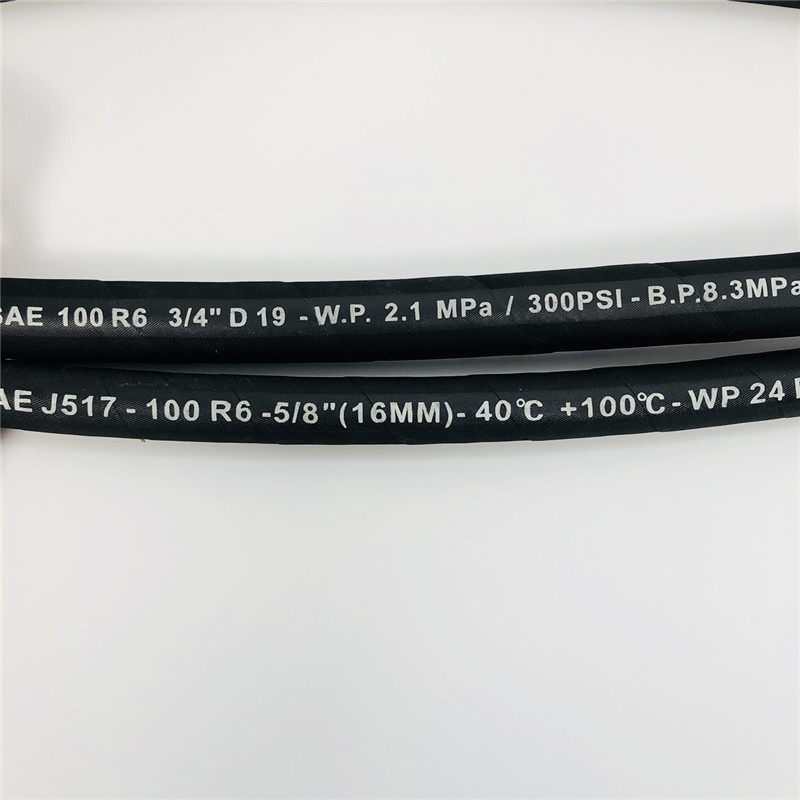Jul . 21, 2024 01:01 Back to list
Durable Stainless Steel Wire for High-Performance Metal Hose Applications in Various Industries
The Role of Stainless Steel Wire in Metal Hose Services
Stainless steel wire is an integral component of metal hose systems, widely recognized for its strength, durability, and resistance to corrosion. As industries continue to evolve, the demand for more advanced and reliable metal hoses has surged, making stainless steel wire an essential material in ensuring optimal performance and longevity in various applications.
Understanding Metal Hoses
Metal hoses are flexible tubes made from a variety of metals, primarily used to transfer fluids or gases under extreme temperatures and pressures. Their primary advantages include flexibility, resistance to temperature fluctuations, and the ability to withstand chemical exposure. Within this structure, stainless steel wire plays a crucial role, serving as both a protective and functional element.
Key Properties of Stainless Steel Wire
The selection of stainless steel wire for metal hoses is often driven by its unique properties. One of the most significant is its excellent corrosion resistance. Stainless steel's inherent ability to resist oxidation makes it ideal for environments where exposure to moisture or chemicals is a concern. Additionally, stainless steel’s high tensile strength ensures that the wire can withstand high-pressure applications without failure.
Moreover, stainless steel wire presents good fatigue resistance, allowing metal hoses to endure cycles of bending and flexing without succumbing to wear and tear. This characteristic is particularly important in applications such as automotive exhaust systems, aerospace operations, and various industrial processes where movement is constant.
Applications of Stainless Steel Wire in Metal Hoses
stainless steel wire of metal hose service

The applications of stainless steel wire in metal hoses are diverse and span numerous industries. In the automotive sector, these hoses are essential for coolant and exhaust systems, providing the flexibility needed to handle engine vibrations and thermal expansion. Similarly, in food and pharmaceutical industries, stainless steel hoses fabricated from high-grade wire ensure sanitation and hygiene, while being capable of handling the rigorous cleaning processes involved in these sectors.
In the oil and gas industry, stainless steel wire-reinforced metal hoses are commonly used for transferring fuels and other volatile substances. The strength and durability of stainless steel make these hoses reliable in high-pressure and high-temperature conditions, reducing the risk of leaks and failures that could have catastrophic consequences.
Manufacturing Stainless Steel Wire for Metal Hoses
The manufacturing process of stainless steel wire for metal hoses involves several critical steps to ensure quality and functionality. It starts with selecting the right grade of stainless steel, which varies depending on the specific requirements of the application. Once selected, the wire undergoes processes such as cold drawing, which increases its strength and reduces its diameter, making it suitable for use in metal hoses.
Post-production treatments like annealing may also be applied, enhancing the wire's ductility and resistance to corrosion. Quality control measures are essential throughout the process, with tests conducted to ensure that the wire meets industry standards.
Conclusion
In summary, stainless steel wire plays a pivotal role in the performance and reliability of metal hoses across various industries. Its unique properties, including corrosion resistance, tensile strength, and flexibility, make it an indispensable material in manufacturing durable and efficient hose systems. As industries continue to advance towards higher safety and performance standards, the significance of stainless steel wire in metal hose service will only continue to grow, facilitating innovation and supporting the evolving needs of the market.
-
Best Four Steel Wire Spiral Hose Hydraulic R12 – Durable High-Pressure Hose Manufacturer
NewsJul.08,2025
-
High-Quality 1/4 Hydraulic Hose – Soft, Flexible & Durable Rubber Hoses for Industrial Use
NewsJul.08,2025
-
1 1 2 Inch Hydraulic Flexible Hose - Durable, Reliable, High-Pressure Solutions
NewsJul.07,2025
-
High-Quality 1 2 Rubber Hose - Durable, Flexible Hydraulic Solutions
NewsJul.07,2025
-
Discover SAE Hydraulic Hose Types - High Quality & Durable Hoses from Leading Factory Supplier
NewsJul.06,2025
-
High Pressure Wire Hydraulic Rubber Hose Supplier Durable & Reliable 1SN Hose Solutions
NewsJul.06,2025
